Quartz vs Laminate Countertops
Home » Home Remodeling » Kitchen Countertops » Quartz vs Laminate Countertops
After narrowing down different options for your kitchen countertops, you may be left with the two choices quartz or laminate. Both laminate and quartz have the ability to mimic other materials which is why they are so attractive but these are very different countertops.
On the one hand, you have a cost-efficient option that is made out of paper coated in resin that is subject to high heat and pressure. On the other hand, you have engineered stone quartz which is a mix of different minerals like quartz and resins which result in a non-porous, scratch-resistant surface. Get to know these options before making your decision with our guide.
Quartz vs Laminate: The Difference
What is Quartz?
Quartz is a natural mineral that is known for being abundant in the earth. However, quartz as a countertop material is engineered and is composed of polymer resins, smaller pieces of the mineral quartz, and can be manufactured with other minerals. Quartz, or engineered stone, will typically be made out of mostly quartz (90% up to 95%) and be combined with a small percentage of synthetic resins (5% up to 10%.) Known for its uniform appearance, quartz is a popular kitchen countertop material because many homeowners can find countertops that fit right into their current interior.
What is Laminate?
Another popular countertop material is laminate. Laminate counters will vary from manufacturer to manufacturer but have the same basic structure. Laminate countertops are made by having plastic resins laminated onto layers of kraft paper or particleboard which is then covered by a print or image layer. Today, premium laminates or high-quality laminate’s plastic layer is fused with cellulose which is solidified under heat and pressure. This results in a high-quality laminate countertop with a stronger, heat, and scratch-resistant surface. Similar to quartz countertops, laminate countertops can imitate marble, wood, and granite countertops.
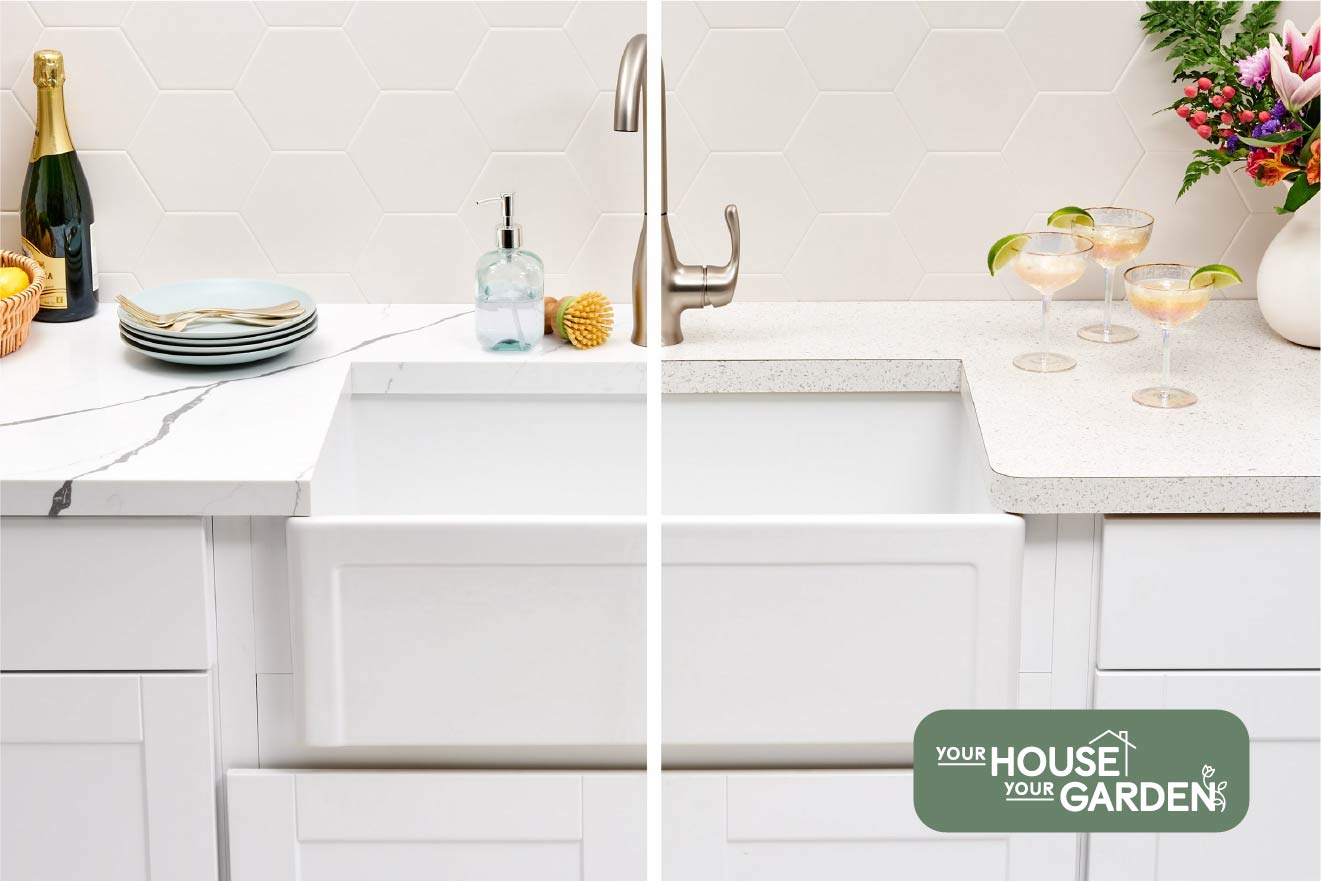
Pros and Cons
When choosing between laminate countertops or quartz countertops, the benefits and drawbacks of each countertop material should be assessed. Choose the right countertop taking the following into consideration:
Quartz Countertops: Pros
- Low-maintenance: Unlike other countertop materials like stone countertops, quartz counters are easy to take care of. Quartz countertops require very little maintenance because they are non-porous and do not need sealing. After installation, clean up spills with mild soap and water or simply wipe off crumbs and leftover food.
- Interior Design-friendly: Whether you’re looking for solid colors, faux granite countertops with an interesting veining structure, or a countertop with a much more uniform appearance, a quartz countertop can be manufactured according to your preferences. For a countertop material with a versatile appearance, quartz countertops are known for being extremely interior design-friendly.
- Durability: Engineered quartz countertops can take the wear and tear of an average kitchen. A quartz counter is made out of a thick slab that is scratch, chip, and stain-resistant.
Quartz Countertops: Cons
- Pricier than Other Countertop Options: While quartz is a great option for quality countertops, quartz is on the higher end of the price spectrum. Though not as expensive as granite, quartz can become expensive per square foot if the material’s content is pricier, you opt for professional installation and choose rolled edges for your countertops.
- Engineered Quality: Quartz has a wider range of finishes compared to different materials but this can be seen as a negative quality by some homeowners. This is because the quartz countertop material is engineered to be uniform, unlike the natural stone granite. Having patterns and designs that are not unique may make materials like granite or marble more appealing with their one-of-a-kind slabs.
- Not Completely Heat-resistant: With the resin in a quartz countertop, this material cannot withstand direct heat and will be damaged by hot pots and pans. However, the quartz itself is resistant to heat and a quartz counter can withstand temperatures up to 300°F (149°C.)
Laminate Countertops: Pros
- Budget-friendly: Compared to other materials, laminate has a lower cost in terms of the material itself and installation. Laminate countertops cost will cost you at least $20 and can cost up to $65 per square foot. For installation services that you can avail of when remodeling or renovating your home, price quotes will range from $40 to $80.
- Versatile: A laminate countertop is also versatile in shapes. While laminate can mimic different materials, have a matte finish, or be covered with a clear wear layer, laminated counters can be shaped into various shapes. Unlike granite, a natural stone that is cut into slabs, laminate countertops can be curved and fit onto any counter.
- Easily Installed: Laminate is a material that can be installed by professionals as well as homeowners. If you are carrying out a kitchen remodeling project yourself, a laminate countertop can be installed yourself.
- Wide Aesthetic Range: Laminate is manufactured with various designs, finishes, and edge profiles. Choose from bold colors to prints and patterns that compliment your mosaic tile backsplash.
- Easy to Maintain: There is no need for ammonia-based cleaners or other expensive and fancy cleaning products. Even a few seconds of wiping down a laminate countertop with warm, soapy water can clean up spilled liquid well.
Laminate Countertops: Cons
- Not Heat-resistant: Laminate is susceptible to heat damage. While it can take on relatively low temperatures, a hot pan will definitely scorch and damage the laminate covering. To maintain your counters, use heating pads to protect them.
- Can be Scratched: Laminate can be scratched by sharp objects in a busy kitchen. If you are not using a cutting board, the scratches on the laminate counter will definitely stay. While scratches are less noticeable for darker laminate slabs, they can become a breeding ground for bacteria.
- Will Chip: Another downside to laminate is that it will chip and be difficult to repair. It Is not the most durable material which means that the covering or edge banding that covers its sides can chip and be peeled off.
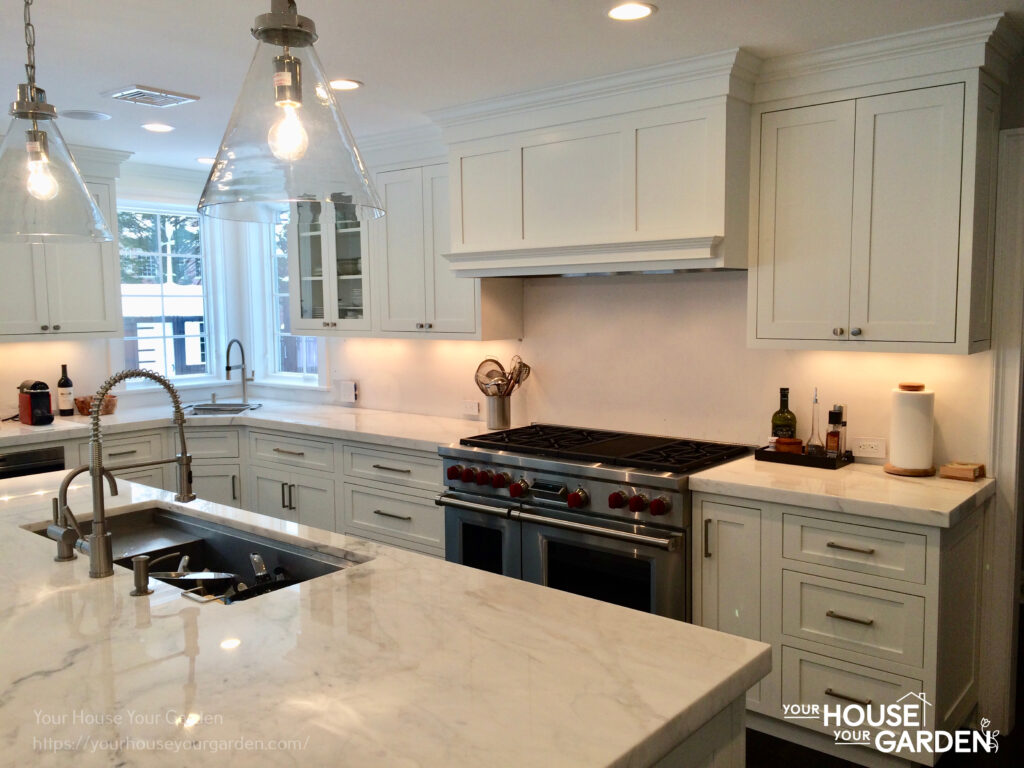
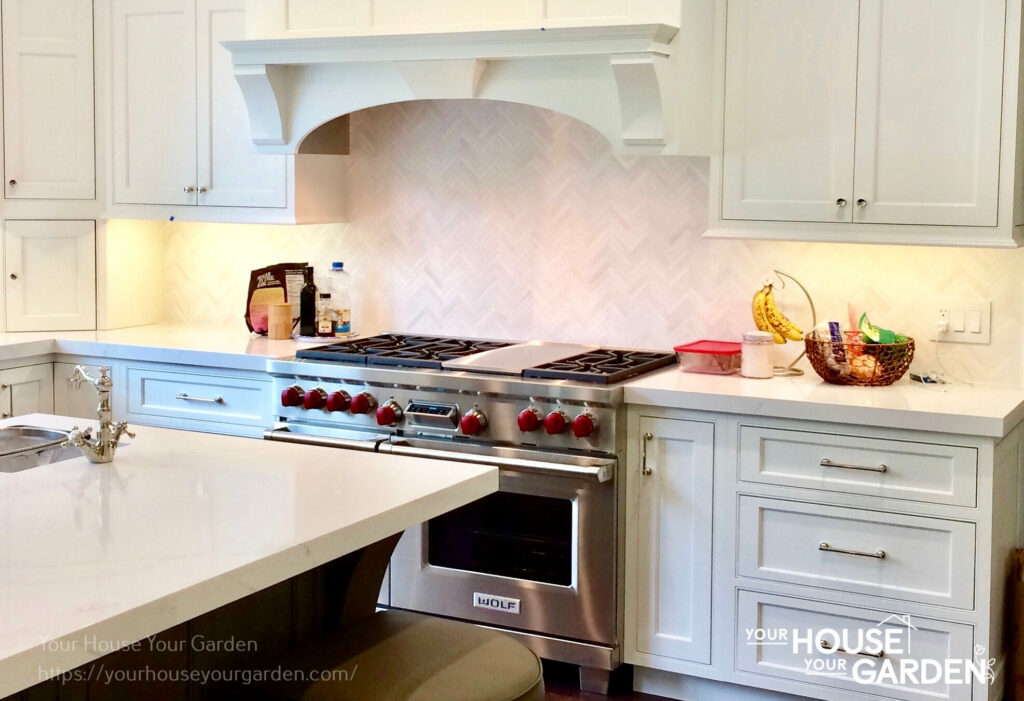
Comparing the Two
Looking at quartz and laminate side by side, we can compare them based on their:
Maintenance
Both laminate and quartz are easy to maintain after installation. Simply wipe them down with warm, soapy water and use a kitchen towel to wipe off crumbs.
However, these materials differ when it comes to scratching and stains. Unlike quartz, laminate requires immediate care when there are spills. Laminate will also need to be replaced because they cannot be refinished after they have been scratched.
Durability
While both are easy to install, easy to maintain, and relatively durable, laminate is more prone to scorching, scratching, and chipping than quartz. So, quartz is the more durable of the two because it is naturally stain, scratch, and heat-resistant.
Color
Both laminate and quartz countertops can be manufactured in neutral, bright, or dark colors. These are counter materials that can be made to mimic what granite, concrete, wood, or marble looks like.
Cost
The difference in cost between laminate and quartz is significant. Laminate, per square foot, will cost anywhere from $20 to $65 while quartz will cost at least $60 per square foot. Also, there are installation costs for quartz because, unlike laminate, this type of countertop should not be installed as a DIY project.
Resale Value
Compared to laminate, quartz can increase the value of a home because it is the finer and more expensive countertop option. Adding quartz countertops in bathrooms and the kitchen can significantly increase the resale value of your home as opposed to having laminate counters.
Heat Resistance
Quartz is relatively resistant to heat but an engineered countertop will scorch. However, a laminate counter will melt and become deformed when hot appliances and kitchenware come in contact with it. For bustling kitchens, quartz is a better option but both require heat pads for maintenance.
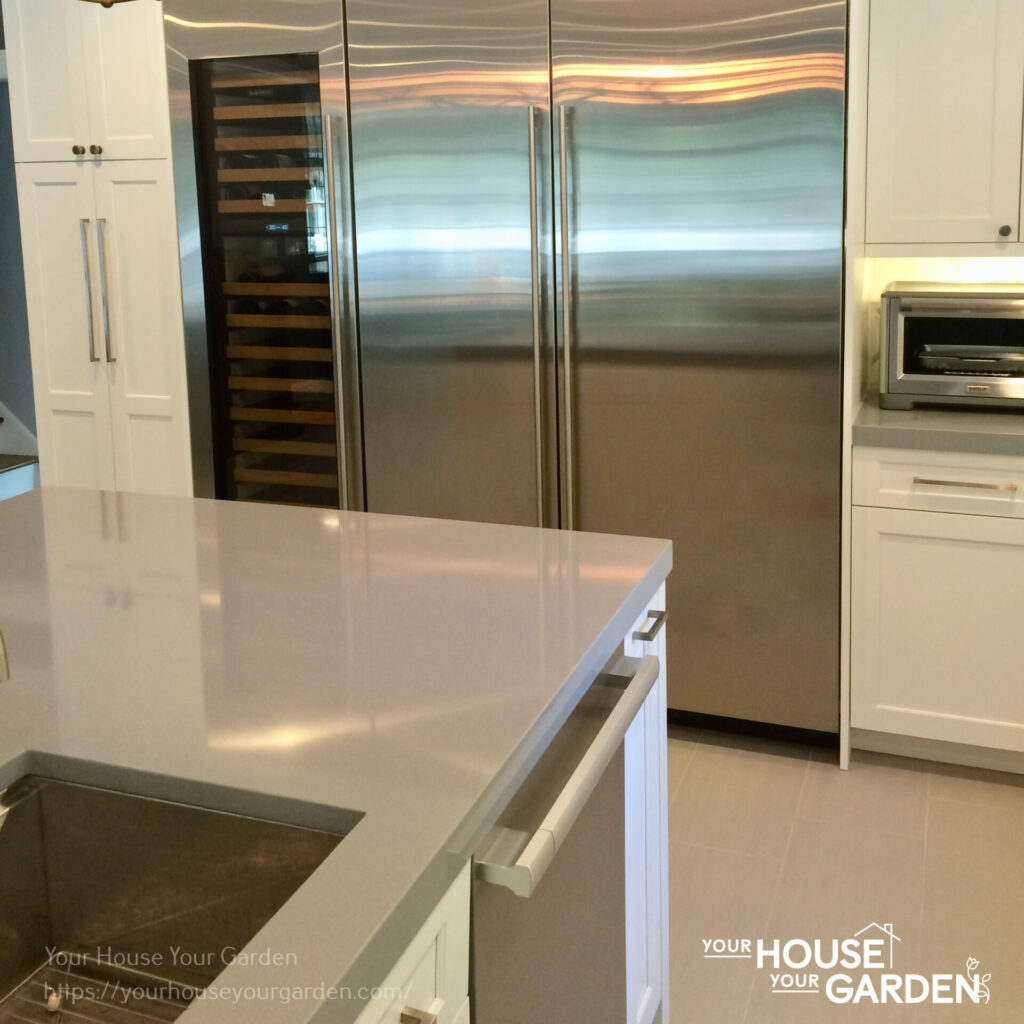
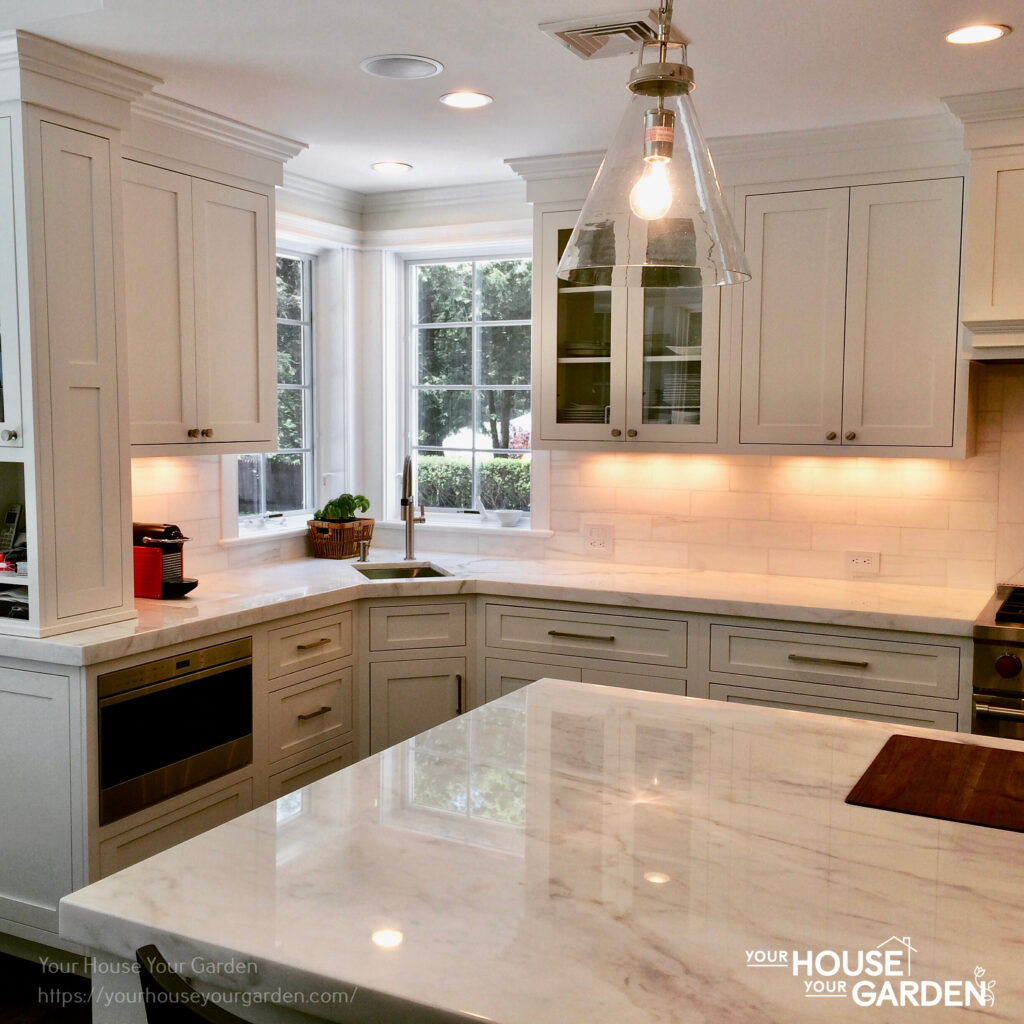
What is Better: Quartz vs Laminate?
Quartz may be the more expensive option, but it is advantageous to invest in this type of countertop. Not only is the engineered stone resistant to germs and scratches but it is available in an array of finishes and colors as well.


